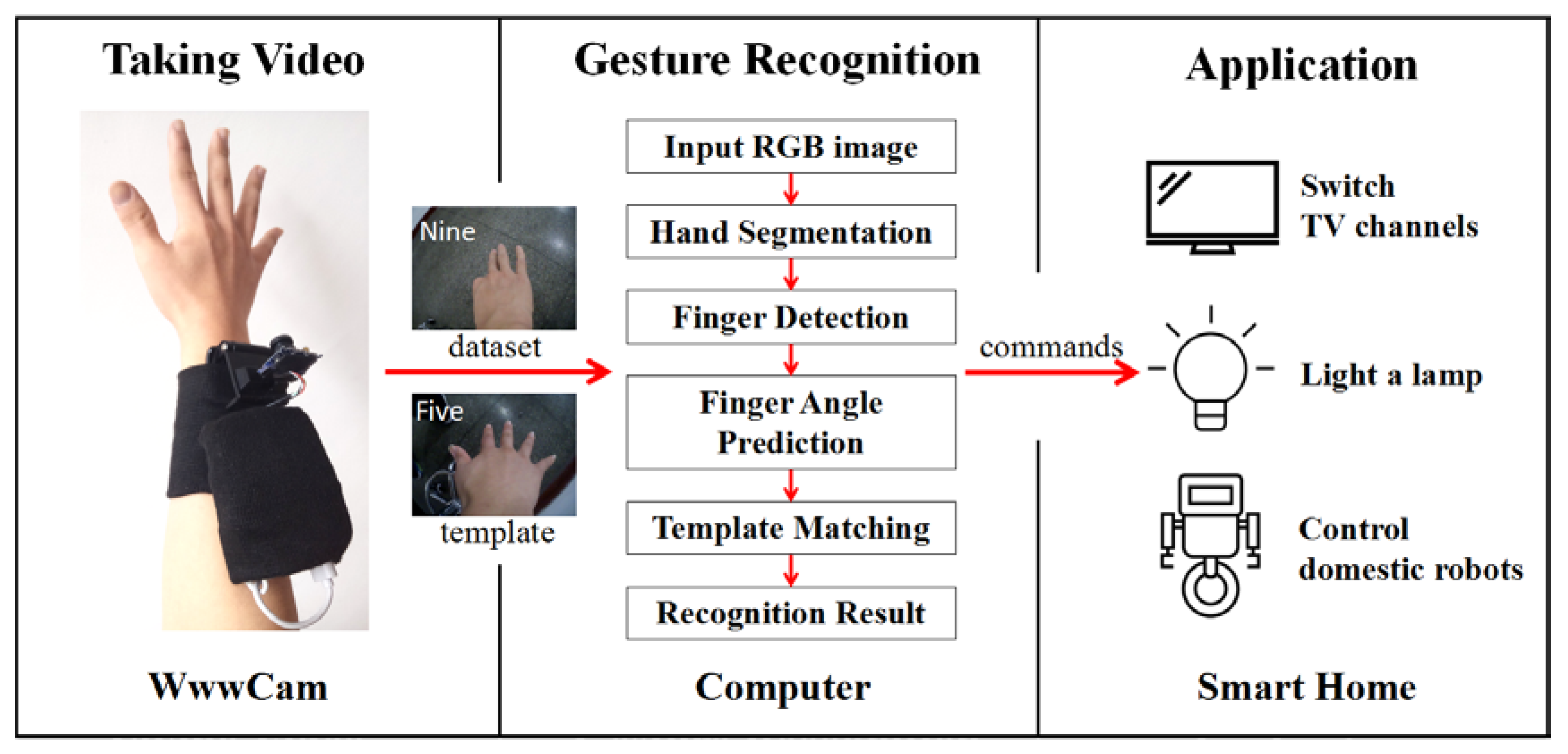Hand Action Recognition Circuit Diagram A demonstration of the real-time gesture recognizer made in the UW Allen School course "Prototyping Interactive Systems" taught by Professor Jon Froehlich. S

The gestures are sensed using an accelerometer and sent to the ESP application running on your computer. ESP uses a simple machine learning algorithm to match the live accelerometer data to recorded examples of different gestures, sending a message back to the Arduino when it recognizes a gesture similar to one of the examples.

Gesture Recognition Using Accelerometer and ESP Circuit Diagram
The most used algorithms for problems with time series data, such as audio and gesture recognition, are Hidden Markov Model (HMM) and Dynamic Time Warping (DTW). In this prototype case, the processor used to process the accelerometer data and the ML model, to classify a gesture, is an ATmega328P. The second step (Gesture Recognition) is to recognize the gesture from a set of pre-defined gestures on 3-axis accelerometer data along with statistical parameters - mean, median, root mean square (RMS), standard deviation, variance, skewness, and kurtosis over which SVM is modeled by defining it as a multi-class classification problem. The ESP system make it easy to recognize gestures you make using an accelerometer.

My goal is to recognize simple gestures from accelerometers mounted on a sun spot. A gesture could be as simple as rotating the device or moving the device in several different motions. The device For actual gesture recognition we ended up using a variant of the $1 Recognizer that did not care about rotation and had an extra dimension. It

Hand Gesture Recognition using TinyML on OpenMV Circuit Diagram
Gesture recognition is a growing area of interest because it provides a natural, 3D interface for humans to communicate with computers. In this paper, we present two methods to recognize hand gestures using a 3-axis accelerometer. Using an accelerometer has lower complexity and cost compared to camera-based gesture recognition. In addition,
